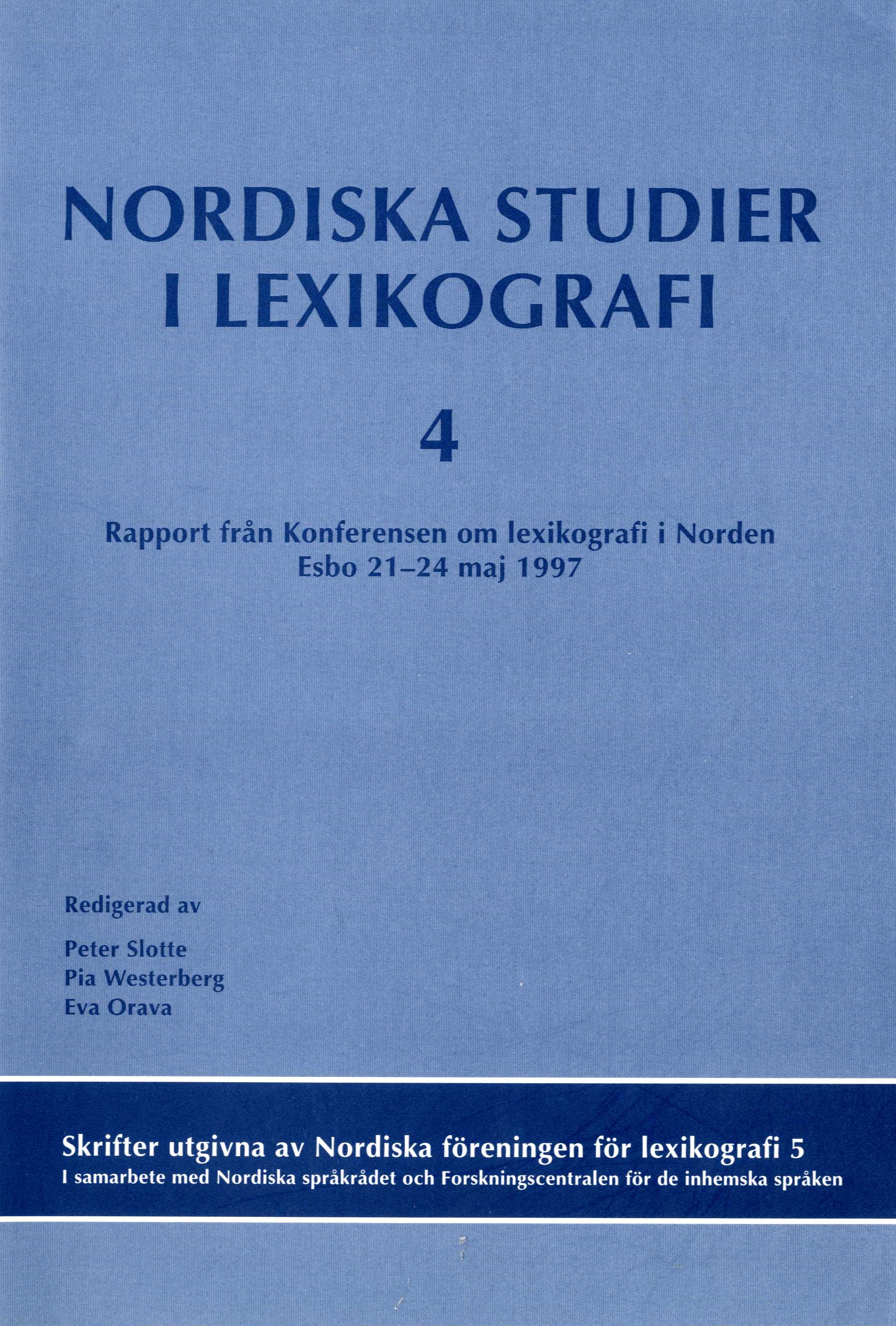Paradigmatisering av russiske ord i tospråklige ordbøker. Grammatiske angivelser i "Stor norsk-russisk ordbok"
Abstract
A Comprehensive Norwegian-Russian Dictionary (NRD) is being compiled by a team headed by Professor Valery Berkov (Universities of Oslo and St. Petersburg). In this paper the author describes certain problems connected with the granunatical information accompanying the Russian equivalents in this project.
The Russian-Norwegian Dictionary compiled by V. P. Berkov (RND, 2nd edition 1994) applies a code system devised by A. A. Zaliznyak. The codes are attached to the Russian Jernmas and refer to a large dictionary grammar included as an appendix. Such a system tends to be more distracting for the user when the codes are attached to the equivalents in a bilingual dictionary. Furthermore, it is desirable to cut such coding down to a minimum to secure economy of space. By adopting diasystematic markingthatpresupposes elementary knowledge ofRussian granunar and thus omits labelling ofregularly inflected words, two aims would be attained: economy of space and more effective signals to the user as to what is regular or not (no code: here you ought to be able to deduce the inflection etc. from the form; a code: look out for an irregularity!). A survey carried out among some groups of probable users of the NRD revealed that those acquainted with and used to the coding in the RND have a conservative attitude to any changes in the Zaliznyak system. This will be considered in the final solution adopted for coding in the NRD.
Downloads
Published
How to Cite
Issue
Section
License
Nordisk Forening for Leksikografi/NSL og forfatterne.





